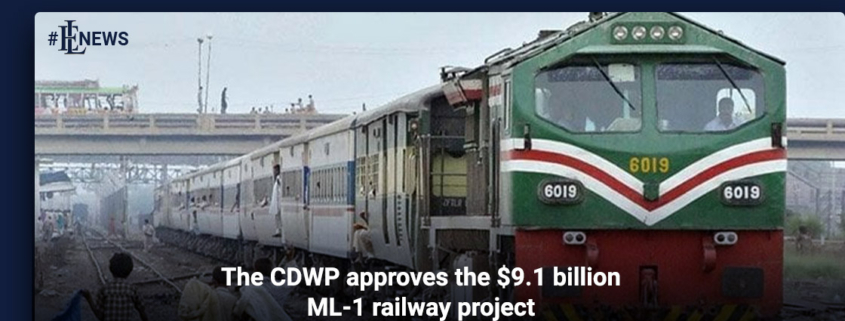The CDWP approves the $9.1 billion ML-1 railway project
News sources said on October 20 that the USD 9.85 billion Pakistan Railways (PR) Main-Line-1 (ML-1) project has been approved by the Central Development Working Group (CDWP).
Read more with EL news: LDA binds transfer tax to the DC rate
The Executive Committee of the National Economic Council (ECNEC) is asked to give the project its final go-ahead. The project is approved in principle, but the original estimate of how much it would cost to build has gone up by 45%. According to the revised cost plan, the project’s development work has been split into two parts. The first part, which will cost PKR 1.97 trillion, will involve building the ML-1. The security of ML-1 is a concern during the second phase, which would cost PKR 35.991 billion.
The new Project Concept-1 (PC-1) will fix up a route that is 1,733 kilometers long. Along the way, 130 stations, 130 bike bridges, and 482 underpasses will be built. It was pointed out that the first phase will be finished in three separate packages. Package-I has five parts: the Nawabshah-Rohri section, the Multan-Lahore section, the Lahore-Lalamusa section, the Kaluwal-Pandora section, and the Upgrading of Pakistan Railways Training Academy (Walton).
Also, these things were part of the project’s scope:
- Putting down a new track with a better subgrade for 160 km/h to increase speed from 65 to 105 km/h to 120 to 160 km/h.
- Important bridges are being fixed up and new ones are being built.
- Putting in place modern signaling and communication systems
- Level crossings are being changed into underpasses and flyovers.
- Tracks are fenced off
- The dry port was built near Havelian.
It’s important to note that the ML-1 project’s framework agreement was signed on May 15, 2017, when the prime minister was in China. On May 15, 2017, the business contract for the first design was also signed. At the 6th JCC meeting, the project was called “strategic,” and the Executive Committee of the National Economic Council (ECNEC) had already done a feasibility study and given it the green light in August 2020.



